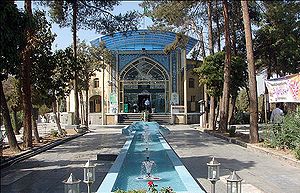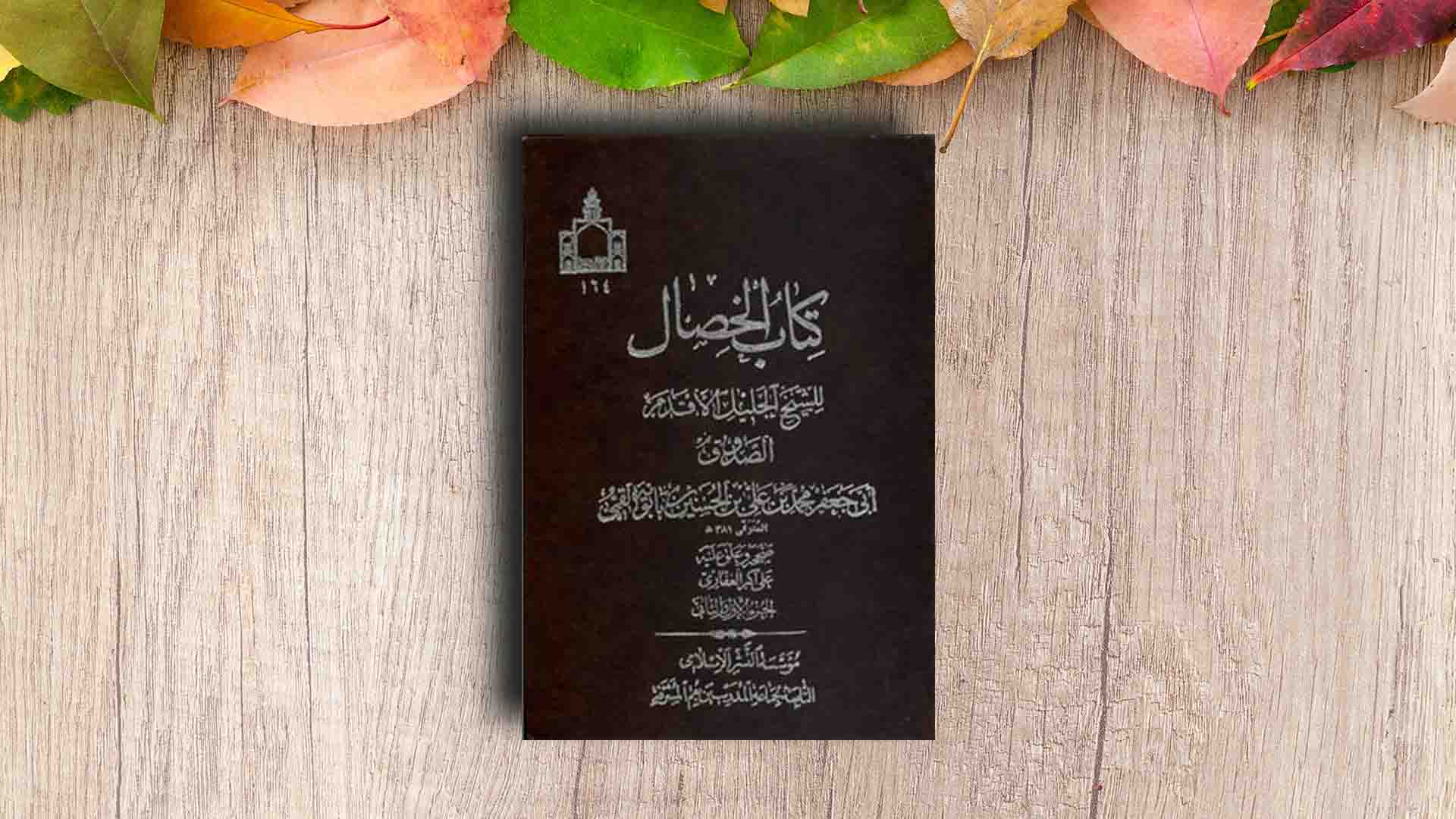Al Khisal (A numeric Classification of traditions on characteristics) is chronicled by Ibn Babooyeh. He was widely known as ‘Sheikh Al-Sadooq’ due to his authenticity in narrating traditions and explaining them with the help of theological arguments.
His book Al Khisal demonstrates the importance of numbers in the traditions he narrates.
Al-Khisal is a great encyclopedia on Islamic knowledge, the forbidden and the allowed acts, historical topics, interpretations of the Holy Quran, philosophical points, and political issues, with emphasis on ethics, manners, and sound characteristics. It is one of the most valuable sources of traditions from the members of the Holy Household of the Prophet of God (SAWS). It is an authentic source and many authoritative works on Shiite traditions such as Bihar Al-Anwar have cited it as a reference.
The book has 26 numbered parts and includes 1,225 hadith. Shaykh Saduq reports: “Investigating in works of precedent man of religious sciences and Islamic sages, I find out that they wrote many books in a different part of science but it was not written by them along with relations between numbers and good or bad characters alike. I write a book with this harmony for the sake of nearing to Allah.”
About the author

ٱلشَّيْخ ٱلصَّدُوق – Shaykh Sadooq’s name is Abu Ja’far Muhammad ibn ‘Ali ibn Babawayh al-Qummi. He is commonly referred to as Ibn Babawayh or Shaykh al Sadooq. He is a prolific scholar whose work includes Man la Yahdurul Faqih (One of the four main books of Shia Hadith collections). He was born after 305 A.H. Born and raised in Qum, Iran. He later moved to Baghdad for learning about the traditions of Islam. He wrote over 300 books. Many of them are considered lost. During his last period, he stayed in the city of Ray where he died in 381 A.H. He was buried at a place now known as Ibn Babawayh Cemetery in the city of Ray, Iran.
His other works:
Kitab man la yahduruh al-faqih (the book for the one who does not have a Faqih before him); one of the Four Books of the Shi’a, and al-Saduq’s most famous work. As its title implies, the book is mainly concerned with hadith relating to fiqh.
- Kamal al-din wa tamam al-ni’ma (the perfection of the religion and the fulfillment of the blessing); a defense of the belief in Imam al-Mahdi (a) and his occultation.
- Al-Tawhid; a compilation of hadith about tawhid, divine attributes, divine actions, and other theological issues.
- Al-Muqni’ (the convincer); a compilation of hadith concerning legal matters.
- Ilal al-sharayi’ (the causes of the rulings); an explanation of the philosophy behind different Islamic rulings.
- Al-Amali (dictations); a compilation of hadith that he dictated to some of his students.
- Al-I’tiqadat (the beliefs); is a treatise of Shi’a beliefs.
- Ma’ani al-akhbar (the meanings of the narrations); an explanation of the deeper meanings of some hadith and Quranic verses.
- ‘Uyun akhbar al-Rida (the springs of the narrations of al-Rida); a compilation of hadith from Imam al-Rida (a).
- Al-Khisal (the clusters); is a collection of hadith categorized according to the stress that each lays on a specific number.
- Thawab al-a’mal wa ‘iqab al-a’mal (the reward of deeds and the punishment of deeds]]; a description of righteous deeds and their rewards and evil deeds and their punishments.
- Al-Hidaya (the guidance); is a collection of hadith related to beliefs and fiqh.
